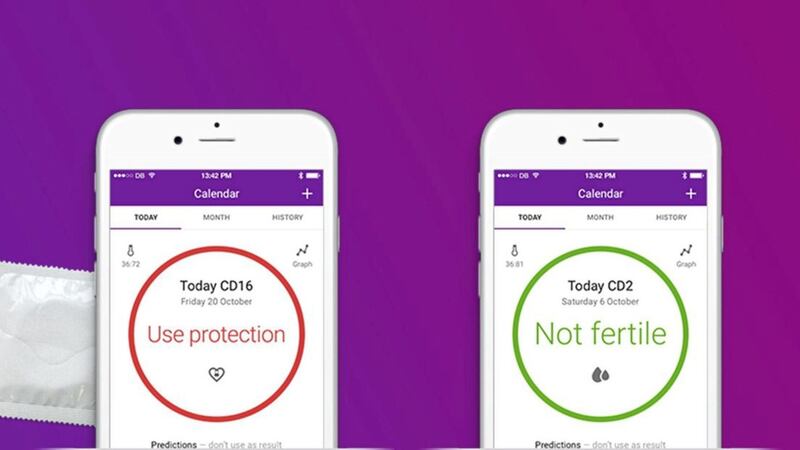IT GAINS 10,000 users every month, is the only software to be approved as contraception and doesn't put your hormones out of whack. It's also just as effective as taking the pill.
A non-invasive, non-hormonal contraceptive was once the stuff of fallacy, but now a new smartphone app called Natural Cycles is revolutionising the birth control industry for thousands of women.
The app, which costs £40 for an annual subscription, uses a smart thermometer to help women track their fertile days, alerting them to the periods when it is safe to have unprotected sex. This isn't anything new: natural family planning has been around for centuries, but the smart tech is one of the first innovations to provide easy-to-digest information on your fertility that can be tracked on a smartphone.
By taking your temperature every day and plugging it into the app, along with the dates of your last periods, it assesses for the subtle rise in basal body temperature of around 0.3C that happens at the time of ovulation. From this information the app will give you a result for that day; either green (safe to have sex) or red (abstain from sex, or use a condom).
It's certainly a lot more fiddly than just popping a pill, so why has the app managed to convert 150,000 women in the UK, and counting? It could all be down to new research. The side-effects of modern versions of the pill have been well documented, from mood swings and nausea to acne and bloating.
But recent studies suggest there might be more serious risks in long-term use. For decades women have been told that newer versions of hormonal birth control contain significantly lower doses of oestrogen than their predecessors, minimising the risk of breast cancer. Rather worryingly though, a large breakthrough survey of 1.8 million Danish women – which was published in the New England Journal of Medicine recently – found that a moderate risk is still present.
In a climate where young women are placing more value on health and wellness than ever before, natural curiosity about the mechanics of the pill have led us to question and circumvent an industry that has changed very little in the past half a century.
Developed by former CERN particle physicist Elina Berglund and her husband Raoul Scherwitzl in 2014, the Natural Cycles app also has one other major selling point: it has the stats to back it up. It has proved 93 per cent effective (when used perfectly) in a study of over 20,000 women, and has since become the first app to be certified as a valid form of contraception by EU inspection body Tuv Sud.
Aside from activity apps, fertility trackers are now the most frequently downloaded in the Apple Store and alternatives like Ovia, Glow and Kindara are closely following in the footsteps of Natural Cycles.
Of course, family planning using an algorithm is not fail-safe. Much like the pill, it doesn't protect against STIs, and you can't use it while you're hungover – apparently this sends your temperature reading out of whack.






